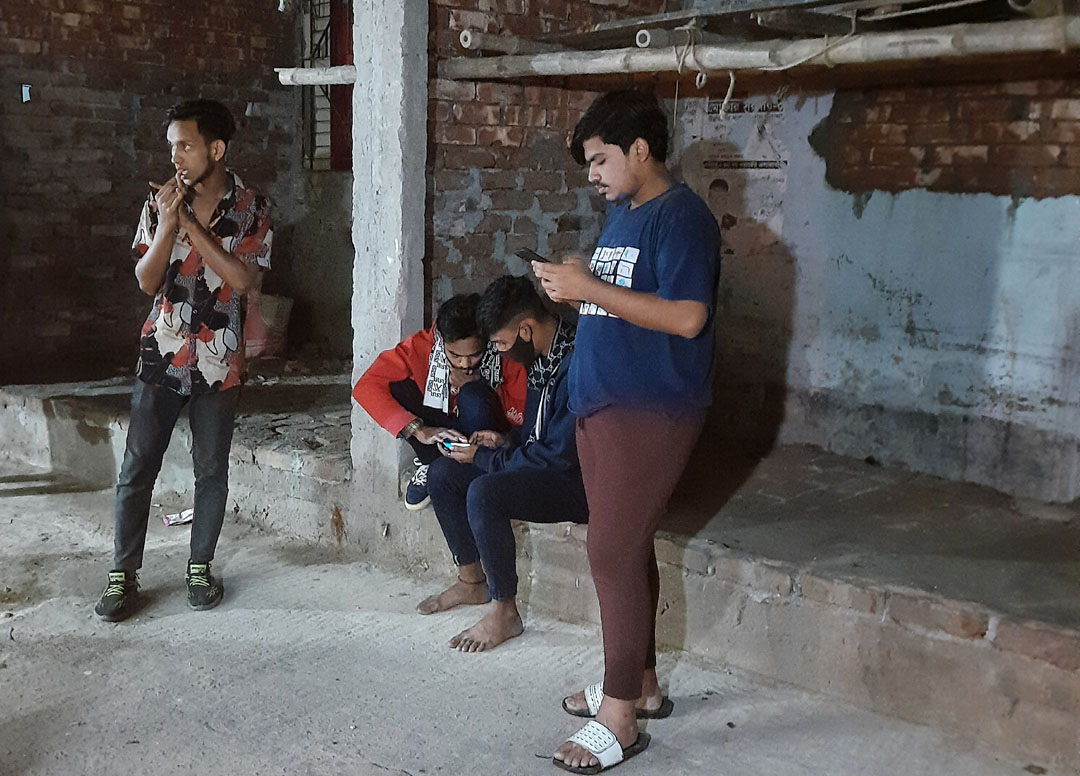Online gaming has been increasing at an alarming rate among the school children in Bangladesh since the outbreak of COVID-19. The pandemic has forced many schools to close and shift to online learning, leaving students with more free time on their hands. This, coupled with the accessibility of smartphones and internet, has led to a surge in the number of children engaging in online gaming.
According to a study conducted by the Bangladesh Association of Software and Information Services (BASIS), the number of online gamers in Bangladesh has increased by 20% since the pandemic began. The study also found that 70% of these gamers are school-aged children.
Another study by the Bangladesh Computer Council (BCC) found that the average daily time spent on gaming by school children has increased by 30% during the pandemic. The BCC also reported that the majority of these children are playing multiplayer online games, such as PUBG and Free Fire.
The increase in online gaming has raised concerns about the impact on the academic performance of school children. A survey conducted by the Bangladesh Open University found that 30% of students who play online games regularly are struggling with their studies. The survey also found that these students are more likely to experience symptoms of depression and anxiety.
Despite the negative effects, many parents in Bangladesh are not aware of the risks of excessive online gaming. A survey conducted by the Bangladesh Telecommunication Regulatory Commission (BTRC) found that only 20% of parents in Bangladesh have set limits on their children's online gaming.
In the baseline survey of an ongoing project of IDRC and KIX, titled Effectiveness and Scalability of Programs for Children who are Out of School and At Risk of Dropping Out in Nepal, Bhutan, and Bangladesh, alarming facts have been discovered. Fahim, a student of class 7 from Control School 1, in his interview, said that his mother does not allow him to play outside. Instead, she bought him a mobile phone. To quote him “Mom does not want me to play or go outside. So, I asked her to buy me a phone to play games.” According to him, he spends 5-6 hours playing Free Fire. One of the enumerators, while interviewing a female participant of class 3, has seen her elder brother (11-13years), started playing free fire just after waking up in the morning.
Participants, especially boys are found to sleep late at night, when asked about their sleep routine. When asked what they do at the nighttime, almost half of them replied that they play games at night. Each match takes 20-30 minutes to play. And playing only one match can never satisfy the teenagers nowadays. Sohel, another participant of class 8 from Treatment School 1 in his interview said that, in one sitting he plays 4 or 5 matches at a time.
So, it means, if a person is playing at least 3 matches at a time before sleeping, he is spending 1.30 hours straight, which can make it harder to fall asleep, eventually reducing the quality of sleep and also the amount of deep-stage sleep.
Safin, from Control School 2, provided the enumerators with the fact, his classmate, encouraged him to download the game PUBG to play with him. He now prefers online games more than playing outside.
Nevertheless, online games have reduced the interest of children to play outside. It made them more confined inside the walls of their room, more precisely inside the blue screen of the online gaming world. Most of the parents, however, are unaware of this fact. To some extent, some of them feel relieved that their children are safe inside the house, as they are working outside, and their children remain alone at home most of the time. So, they might be thinking that, playing games inside house is safer than going outside, considering the current situation of the safety and securities.
In conclusion, online gaming has become alarmingly popular among school children in Bangladesh since the outbreak of COVID-19. This trend is driven by the increased availability of smartphones and internet access, as well as the closure of schools due to the pandemic. While online gaming can be a fun and entertaining activity, excessive gaming can have negative effects on academic performance, mental health, and overall well-being of children. It is important for parents and educators to be aware of this trend and take steps to set limits on children's online gaming.
+8801793593339

